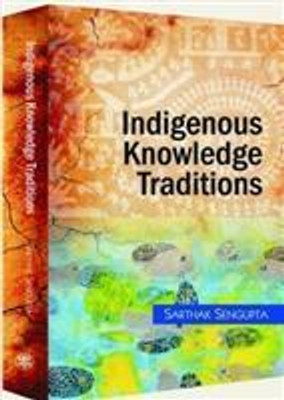Indigenous Knowledge Traditions(Paperback, Sarthak Sengupta)
Quick Overview
Product Price Comparison
About The Book: The present treatise presents a collection of eighteen research articles offered by eminent social scientists to acquaint a wide audience with the Indigenous Knowledge Traditions of varied ethnic groups living in diverse habitat of North East India. Indigenous knowledge is participants' acquaintance of their sequential and societal space, and encompasses nontechnical insight, astuteness, judgment, perceptions and innovative capabilities which should not undermine as informal and confined knowledge. In the contemporary changing world, documentation of the indigenous knowledge traditions and intangible cultural heritage is needed without delay for its urgent maintenance, fortification, management and communication; and for the sustainable development of the indigenous communities. Under one cover, the present volume features with abundance of unique materials and wideranging analysis which is extremely stimulus, useful and surely serve the interest of anthropologists, besides agricultural and medical scientists and many others both at the teaching and research level, as well as planners and policy makers with a concern about the indigenous people ofNorth East India. About The Author: Sarthak Sengupta (b.1955) received his M.Sc. (1977) and Ph.D. (1983) degrees in Anthropology from Dibrugarh University and Gauhati University respectively. He also worked with the Anthropological Survey of India, Government of India and North Eastern Hill University, Shillong for quite some time and conducted intensive field studies among diverse i tribes and castes in Arunachal Pradesh, Assam, Meghalaya, Nagaland, and Uttar Pradesh. I He has had to his own credit ten wellknitted books on North East Indian tribes, and more than 200 original research papers published in various reputed national and international professional journals besides several chapters in edited volumes. He is an active life and 4 executive member of several professional anthropological bodies and mem


